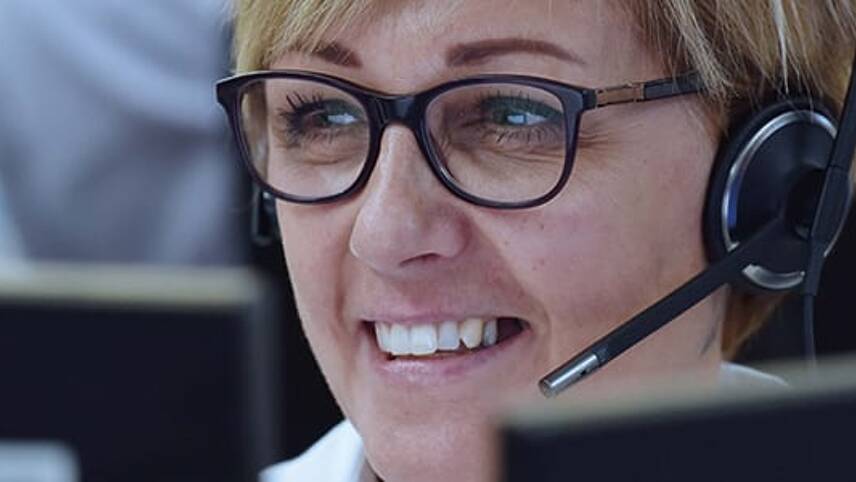You’ve reached your limit!
To continue enjoying Utility Week Innovate, brought to you in association with Utility Week Live or gain unlimited Utility Week site access choose the option that applies to you below:
Register to access Utility Week Innovate
- Get the latest insight on frontline business challenges
- Receive specialist sector newsletters to keep you informed
- Access our Utility Week Innovate content for free
- Join us in bringing collaborative innovation to life at Utility Week Live

How is the drive for net zero transforming expectations of customer service operations? Utility Week, in association with WNS, welcomed energy and water leaders to discuss their experiences.
In Utility Week’s Countdown to COP campaign covering the role of utilities on the UK’s road to net zero, we’ve talked a lot about why it’s important for companies to make sure consumers are enabled to play their part in the transition.
To reach that all-important net zero goal and prevent the terrible consequences of runaway global warming and biodiversity loss, we’ll need to do more than deliver shiny new sustainable infrastructure. We need to change the way we live too. Across millions of households we need to make changes to the way we consume energy and water, shifting our usage habits to times when renewable generation is strong, and leveraging technology and behaviour to use a good amount less of both resources.
This broad vision has been talked about and broadly recognised at a strategic level for a long time. But has the thinking really fed through to drive practical changes in the services utilities offer to their customers, how they talk to them and what they talk to them about?
To try and answer this question, Utility Week – in association with global utilities service partner WNS – hosted an industry roundtable discussion with participation from a range of service, policy and strategy leaders from across the energy and water sectors.
The conversation was broad ranging but the sentiments expressed can be loosely grouped in the following four important themes.
Utilities accept and embrace their responsibility to enable consumer participation in net zero
Unanimously, our group of industry leaders said their organisations had ambitious strategic goals on net zero – and/or broader sustainability targets including water efficiency. They agreed that having this high-level purpose is helping drive conversations about how companies should be engaging with their customers to promote awareness of climate and environmental issues and enable them to make helpful choices. To this end, many companies have launched campaigns to educate consumers about how climate change is posing threats to their communities, along with useful tips about things they can do to mitigate these. But…
It’s time to bridge the disconnect between broad strategic ambitions on net zero and real change in the way customer service is delivered and optimised
Notwithstanding the above strategic emphasis on net zero by utilities, there was a common feeling among our roundtable participants that this has so far failed to convert into real changes in the way customer operations are conducted and optimised.
Several contributors suggested that this is because companies are waiting for key evolutions in market structures and policy frameworks to manifest before flowing down changes to operational practices, procedures and performance targets.
However, the same people were swift to say this “step by step” approach to organisational change is not fit for purpose given the “scale and pace” of transformation demanded by net zero. “We need things to move in tandem”, said one energy company representative. “We’ve got to be moving up and down that chain all the time and iterating all the way through.”
A key example of how participants want customer operations to change centred on the use of agent time on phone calls to customers. Several attendees talked about wanting to use technology to redirect transactional contacts – for example billing queries and change of address requests – to self-serve or automated channels, liberating agent time to have “deeper” and more nuanced conversations with customers about the net zero context and how their energy or water provider could help them contribute to a achieving a more sustainable future.
However, there was a lingering feeling that if this time for agents could be liberated, in some organisations the efficiency saving would more likely be returned to the bottom line via headcount reduction than invested in future service goals.
It’s time to adopt an assertive and consistent net zero narrative in customer communications and interactions
An interesting sentiment expressed by one participant, which seemed to resonate with others, was that utilities need to move beyond applying nudge theory to prompt consumer behaviour changes and adopt a more assertive tone, driving towards consumer accountability. The advocate of this view – a water company representative – said it would “really change the conversation we have with customers”, though it must be underpinned with the offer of tools and techniques for consumers to help them embrace that accountability.
The idea resonated with one of our attendees from the energy sector who said: “I wonder if there’s an opportunity for us to more actively determine what customers desire. A lot of the time in energy we wait to be told by customers ‘this is what’s right for me’ – and we’re influenced to think that way by regulation as well. I wonder if we can flip that around on this topic and say ‘this is what’s important for the wider mission of the globe and this is why you need to get on board’.”
More generally, all attendees concluded that it is time to up the ante on messaging to consumers via all channels about net zero and why it will mean changes – some small and other larger – to the way they use energy and water.
We need to watch out for service gaps
Even as attendees agreed on the need to permeate their customer contact routes with more consistent and assertive messaging on the net zero imperative and options to support it, there was also agreement that this messaging must be flexible and inclusive.
Several attendees talked about the need for agents to be suitably skilled and resourced to adapt their conversations in response to information about a customer’s financial background or property type, for example, so that utilities do not appear insensitive to the varying abilities of different consumers to engage with existing or emerging sustainable products and services.
Some observed that this would likely mean a move away from traditional agent scripting and towards providing them with the training and real-time access to information allowing them to be more autonomous, while keeping organisational purpose in relation to net zero front of mind.
A further and important observation made in relation to this conversation was that utilities need to be alert to the need for diversity in the customer operations teams and to do their upmost to reflect the diversity of their customer base.
One participant representing a consumer advocacy group said there is a developing awareness of the “service gaps” which exist in today’s market because utilities – and third sector organisations – do not mirror those they serve. They said their own organisation’s thinking on this had been sharpened in the pandemic when research had showed “clients from a black or Asian background are less likely to rate our services as excellent compared to white clients. Also, the channel shifts we have had to implement as a result of Covid have meant that some disabled clients have struggled to access support from us. So we know we need to do better… it’s likely utilities are facing similar challenges.”
Everyone agreed that to achieve the scale of participation needed, it is essential all consumers feel that the services utilities offer them are accessible and relevant.
Comment James Towner
Senior VP energy and utilities, WNS
Technology can give you the time to talk to customers
 There can be no doubt how important reducing our carbon footprint and reaching net zero is for all of us. The government-led targets may vary in terms of exactitude and timing but increasingly organisations and consumers are showing the way. Energy and utility companies can and will drive change through shifting production to renewable sources; creating “green” tariffs for customers; introducing efficiency programmes; continuing to deploy meters and smart technology.
There can be no doubt how important reducing our carbon footprint and reaching net zero is for all of us. The government-led targets may vary in terms of exactitude and timing but increasingly organisations and consumers are showing the way. Energy and utility companies can and will drive change through shifting production to renewable sources; creating “green” tariffs for customers; introducing efficiency programmes; continuing to deploy meters and smart technology.
Every day customers – business and domestic – are making increasingly environmentally conscious purchases, from investing in electric or hybrid vehicles to choosing green energy tariffs to using technologies which help them be more efficient. As with every massive shift in the way we live our lives there is a vanguard and rear-guard adoption wave characterise by engaged technology enthusiasts, and in the latter camp a range of technology sceptics as well as those who lack the means to embrace new products due to financial or knowledge limitations.
At WNS we believe that customer service organisations have an essential part to play in achieving net zero. Tens of thousands of advisers, agents and associates interact every day with the customers of energy and utility companies. Furthermore, in addition to this human contact utilities have millions of daily touch points with customers via their websites, self-service tools, web-chat functions and other channels.
This represents a huge opportunity for companies to evangelise and support customers through the energy transition, identifying and explaining the best ways they can practically help move us towards that net zero goal and explaining why it matters. That messaging needs to cut consistently through all communication channels, but especially it needs to come across in human interactions between agents and customers.
But does this ideal fit into the current industry paradigm for customer service? Today the interaction a customer has with their utility is generally transactional in nature: “I want to pay my bill”; “Can I advise you of a change of address”. Customers and organisations want these transactions done quickly and accurately and preferably with as little effort as possible. Can you achieve this and at the same time support customers with achieving net zero?
Resoundingly, yes. Transforming this transactional interaction into a value-based conversation is achievable. Implementing customer journeys that remove or automate the transactional activity is possible thereby creating time for an adviser to help customers. A “green adviser” supported by real-time data to show the energy and water usage in a property would have the skills, tools and confidence to provide proactive advice and education as well as offer the right products to help that customer make a difference.
So, we believe it is possible to re-purpose the customer service organisation: to create the capacity for a value-based conversation with customers. The question for energy and utility companies is, if you could create this time within a customer conversation how would you use it?
Please login or Register to leave a comment.